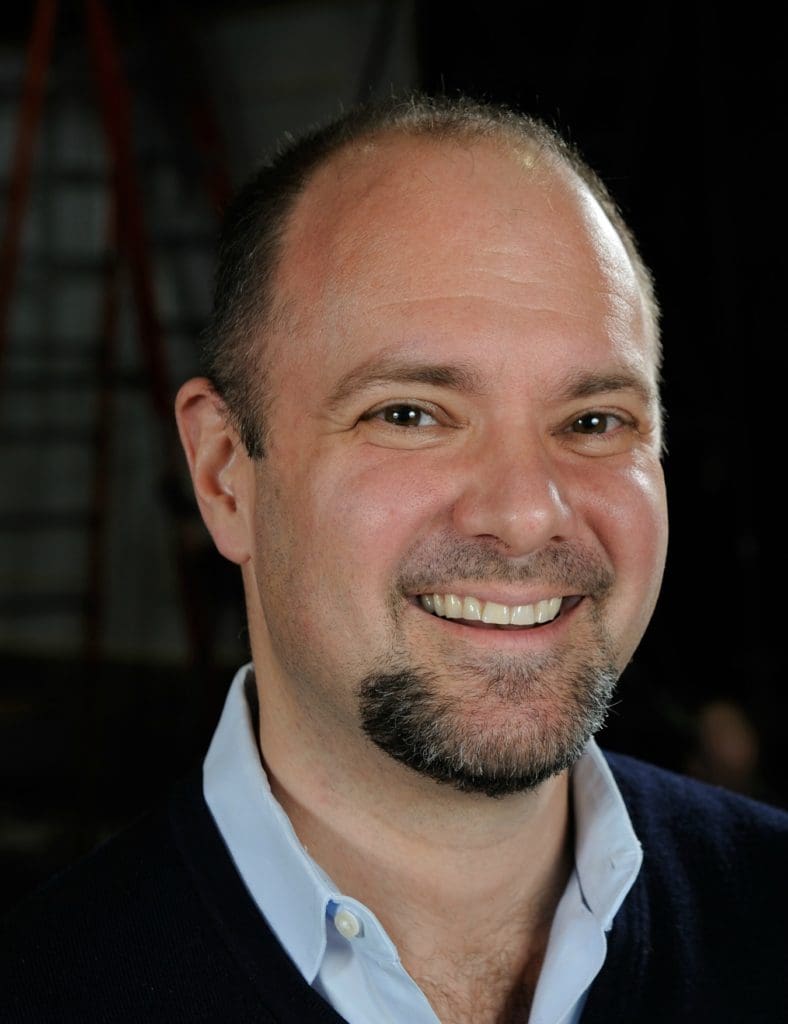5/1/19
Dear friends,
Welcome to the final play of our 2018-19 season, Jose Rivera’s contemporary American classic, Marisol. This extraordinary play premiered in 1992 at the Actor’s Theatre of Louisville as part of their Humana Festival of New American Plays and won an Obie award for best new play in 1993. And the play is as resonant and rich today as it was when it first appeared on a stage over 25 years ago.
Why is that? It may not seem obvious at first blush. Our protagonist, Marisol Perez, is an everywoman, an anonymous office worker in a bland copy editing job, who finds herself unexpectedly in the middle of a grand, celestial conflict. She finds herself in an end time, an apocalypse, a fantastical upside-down world where the laws of civil society, morality, and even physics seem to have suddenly contorted. Marisol feels lost, hopeless, abandoned, because, as an Angel explains to her at the beginning of our story, it’s that “the universal body is sick.”
Reading the news in the morning, here in 2019, we find ourselves feeling the truth of that idea, how a universal body is sick. Every day we are confronted with things that appear apocalyptic: climate change, political dysfunction, school shootings, morally bankrupt leaders… the litany goes on at a breathtaking pace. None of the old rules apply, none of the old structures seem eternal, or sturdy, or even sound. It is at times like these that humans turn to “apocalyptic literature.”
This literature comes from a very long tradition in western culture, dating back to early Jewish texts like the Old Testament Book of Daniel. In it, Daniel sees a world torn apart by beasts, replaced by an “everlasting dominion” of saintly people. Many scholars acknowledge that early Christianity was a “fervently apocalyptic religion,” filled with visions of the end of the world, most famously in the last book of the New Testament, the Revelation of John. In all of these cases, the political and cultural strife of the era is expressed through these end-of-world narratives.
Rivera’s play follows in these early traditions, but it is also deeply inflected by the 20th-century world of drama, that was simultaneously apocalyptic and absurdist. Samuel Beckett, Eugene Ionesco, and Jean Genet saw the world as coming to end, but that this end was a grand, cosmic joke. It’s this Theatre of the Absurd, as Martin Esslin calls it, that tinges Marisol Perez’s experiences with the ridiculous, even the laughable. Who will have the last laugh, and I mean the very, last laugh?
A play this layered needs an interpreter with an equally expansive vision, and Trinity is very fortunate to have the remarkable Brian Mertes to bring the text to thrillingly idiosyncratic life. Mertes has a twenty-five-year relationship with Jose Rivera, from Brian’s days as a New York actor, so no one is better suited to lead Marisol onto our stage.
And Marisol is the perfect end to our season, a season which featured so many stories about the indomitable spirit of humankind, stories about people in impossible circumstances finding their strength, their spirit, their way forward. So sit back, relax, and enjoy this great, epic play. I look forward to seeing you all at the theater.
